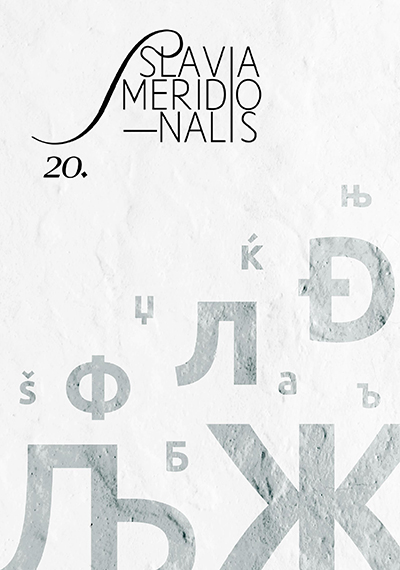Wokół Józefa Obrębskiego narracji o religii i religijności. Na podstawie materiałów z macedońskiego Porecza
Around Józef Obrębski’s Narrative on Religion and Religiosity: On the Basis of Materials Collected in the Macedonian Region of Poreče
Author(s): Joanna RękasSubject(s): Philosophy, Philosophy of Religion
Published by: Instytut Slawistyki Polskiej Akademii Nauk
Keywords: Józef Obrębski; North Macedonia; Poreče; anthropological triad; religious system; transformative familiarity; transformative secularity
Summary/Abstract: The main goal of this article is to present the idiosyncrasies of a description of the religious system adopted by the population of the Macedonian region of Poreče (North Macedonia). The description under consideration was provided in the 1930s by Józef Obrębski (1905–1967), a sociologist, field ethnographer, ethnologist and Slavic studies scholar, who was a student of Kazimierz Moszyński and Kazimierz Nitsch, and a doctoral student of Bronisław Malinowski. Conducting his studies in Poreče, Obrębski used trans-disciplinary rather than interdisciplinary academic competences, which enabled him to reject the assumptions about a discrepancy between religion and magic, and between structured religions and those that – from the perspective of academic observation and narration – lack an unambiguous and hierarchical structure. The most significant features of Obrębski’s narrative on religion and religiosity are presented from the point of view of an anthropological triad: the specificity of the area – the researcher – the text. By recognising himself against the source, i.e. by looking for patterns in the population studied and, at the same time, attempting to resist the research intention and choose “full social and cultural reality” as the object of observation and analysis (everything available to him during almost a year of uninterrupted stay in Poreče), he came up with a description of a religious system whose limits he defined as social, magical and religious. The body of writings from his second Balkan expedition (August 1932 to March 1933) is a model example of locally produced knowledge, which involves an awareness of the distinction between the researcher and the participant (and a scrutiny of this distinction), and which does not favour the researcher but rather makes him involved in the process of joint construction of the final text. The dialogue between the researcher and the informants, coupled with reflection on the activities which Obrębski observed and in which he took part, made it possible to construct a narrative on their religion that is comprehensible beyond the context in which it was created. According to this description, the spatial boundaries of the immediate local community (maało) which no longer exist are continuously reconstructed in a religious cult, and division between the sacred and the profane gains new dimensions in the process. It is not the sanctity but secularity that turns out to be liminal, temporary, suspended, and yet always expecting and alert, fleeting. The profane can exist only in the conditions of relative social stability.
Journal: Slavia Meridionalis
- Issue Year: 2020
- Issue No: 20
- Page Range: 1-34
- Page Count: 34
- Language: Polish

